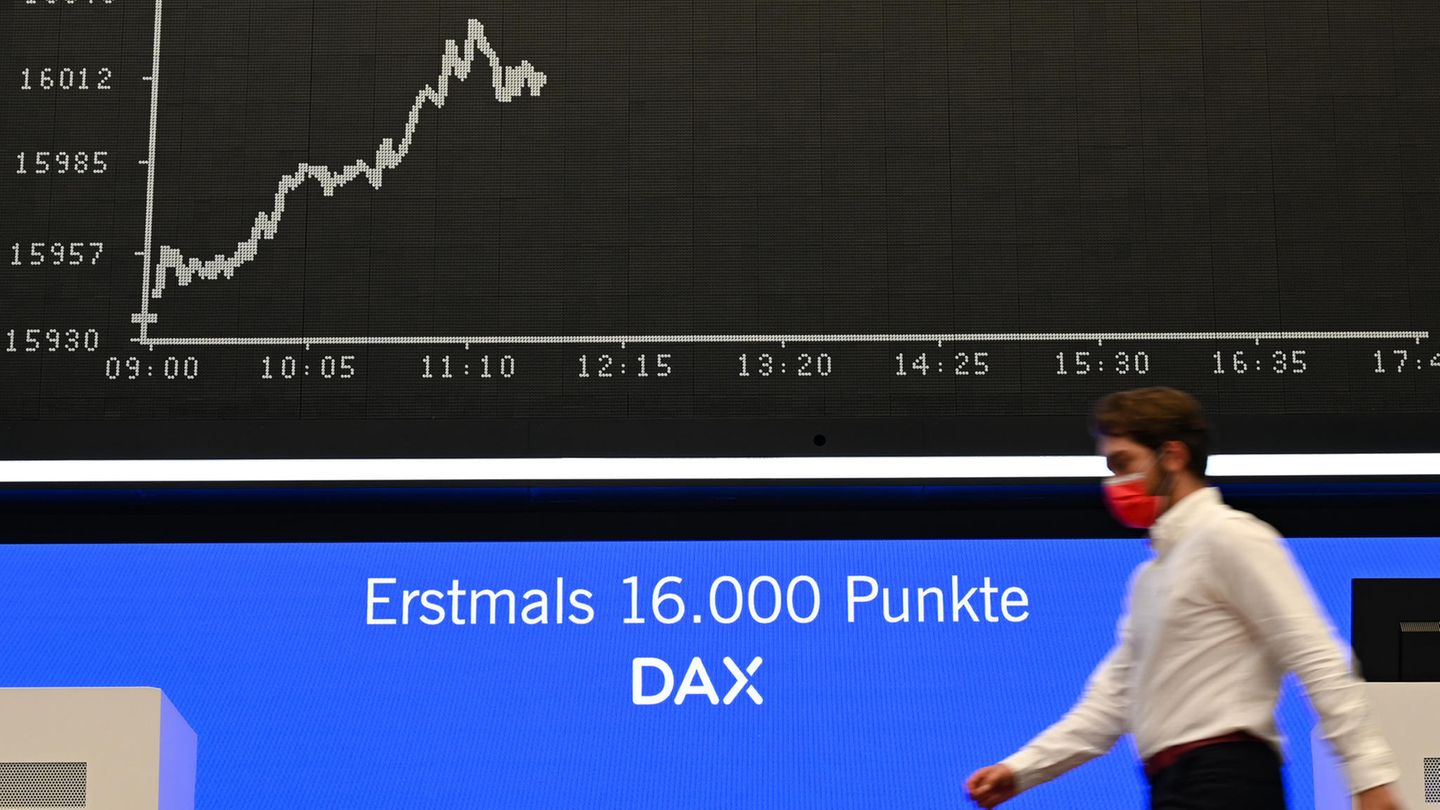Thanks to the global economic upswing, the stock market continues to grow. The German leading index Dax has reached the next thousand mark. Concerns about higher inflation rates and rising corona numbers are not holding back the stock markets for the time being.
The strong recovery in the global economy is driving the stock markets further upwards: The German leading index Dax exceeded the 16,000 point mark for the first time on Friday. In the morning it rose to 16,030.33 points, an increase of 0.58 percent compared to the previous day’s close. It was only at the end of March that the Dax passed the 15,000 point mark, and on January 7th it passed the 14,000 point hurdle. Since the beginning of the year, the stock market barometer has gained almost 17 percent.
Experts attribute the latest surge mainly to fading concerns about higher key interest rates in the US. On the US stock market, the leading stock indices Dow Jones and S&P 500 had held up at record levels.
In recent weeks there have been positive economic signals from numerous sectors, and there have been increasing signs of a global economic recovery. Quarterly balance sheets of many companies have mostly shown increasing sales and profits, the number of unemployed in industrialized countries is falling again. There was also a tailwind from the US inflation data published on Wednesday.
However, there are still supply bottlenecks for raw materials, a lack of supplies for computer chips and, last but not least, the spread of the delta variant of the corona virus.
The Dax cannot be slowed down for the time being
The upward trend on the stock exchanges is supported by the still very low level of interest rates and extensive bond purchases by the central banks. Although inflation rates have risen significantly recently in Europe and the USA, the central banks do not want to abandon their course of cheap money for the time being.
Investor worries about an even stronger rise in US inflation had not been confirmed this week. Although US inflation remained high in July at 5.4 percent year-on-year, it did not accelerate.
A persistently very high level of inflation in the US could increase speculation that the US Federal Reserve might exit its extremely loose monetary policy. This can have a detrimental effect on the stock market because other asset classes then become more attractive again.
In Germany, the annual inflation rate in July was 3.8 percent. The fact that the federal government had reduced VAT for a limited period from July 1, 2020 to December 31, 2020 also played a role here. The regular VAT rates have been in effect again since January 2021, so goods and services tend to be expensive again.
In July, sales prices in German wholesaling rose by 11.3 percent compared to the same month last year – more than they have been since the 1974 oil crisis. Ores, metal, wood and petroleum products were the strongest price drivers, as the Federal Statistical Office announced on Friday.
Jane Stock is a technology author, who has written for 24 Hours World. She writes about the latest in technology news and trends, and is always on the lookout for new and innovative ways to improve his audience’s experience.




